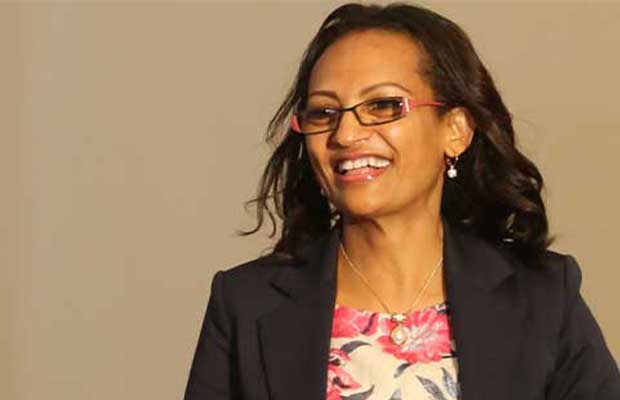
Radar | Mar 02,2024
Prudent management of capital accounts while opening arms to foreign direct investment was advised at the annual conference on development held last week at the Hyatt Regency Hotel on Africa Avenue. The featured speaker at the full-day conference was Louis Kugis, current Chief Asia economist at the S&P Rating Agency with prior stints of employment at the World Bank and the IMF.
His experience of working in east Asian countries for close to two decades, with an emphasis on China, was to provide the conference with perspectives from similar economies.
Louis did a study more than two decades ago on the impact of ethnic heterogeneity on the quantity and quality of public spending, which had rather a gloomy set of summary results such as “Heterogeneity impacts negatively on the quality (or technical efficiency) of government spending” for the IMF.
Fast forward 20 years, the economist with practical experience working in several countries did not waiver.
“Sadly, homogeneity did seem to allow for more technical efficiency,” he told Fortune.
Turhan Saleh, a UNDP resident representative, said, “We don’t want anyone here to leave thinking heterogeneity is a bad thing,” seemingly to frame further engagement along those lines.
UNDP hosted the first annual development conference in Ethiopia, with high-profile speakers from the S&P Rating Agency, the World Bank, the Minister of Planning & Development and researchers at the UNDP, among others.
The theme of the conference held at Hyatt Regency was “Ethiopia 2030: A Country Transformed? Options for a New Generation of Reforms.”
Louis highlighted the analogies between the current Ethiopian economy and China of 40 years ago, emphasising the need for market-conforming mechanisms when explaining most developing governments’ attitudes to dictate foreign currency exchange rates.
Small but competent bureaucracies like that of Japan, which intervene only at critical pillars, were mentioned as models to emulate.
In evident sincerity, he expressed his willingness to assist the country in calibrating the tightrope between substantial public spending, ethnic heterogeneity and the role of government.
Opening remarks were by Katherine Sozi (MD), the UN resident humanitarian coordinator, who reminded the audience that they are all privileged to be here, referencing the prevailing economic depravity. All guests in attendance were then treated to an array of featured speakers and panellists on the economic prospects of Ethiopia in light of the current global geo-political climate.
A presentation on the current economic makeup of the country by Ali Zafar, UNDP's economic advisor, sobered the conference to the superimposing realities of the economy. In the context of the prevailing global economic landscape marked by the war between Russia and Ukraine, the post-covid global supply chain and the recently halted war in the northern part of the country, Zafar highlighted specific characteristics of the Ethiopian economy.
The 2.3 million civil service employees and the mismatch between the labour demand and supply of the economy were seen as critical shortcomings of the national economy. The economist said that the migration to the capital lacking a robust manufacturing sector led to many entering the informal market. This leads to precarious living conditions marked by low wages and minimal productivity. The fragmentation of land, complete state ownership of land and poor infrastructure around most of the farmland were also mentioned as contributing to the low productivity of the agricultural sector.
Zafar also urged the importance of engaging the domestic private sector within the industrial parks, which does not incentivise local businesses to enter. Speaking on political reform, he advised possibly introducing competition for budget allocation by regional states along with proper monitoring of budget spending. The lack of viable institutions marked by poor technology and a high degree of corruption was remarked on by the economist who said, “strong institutions lead to success.”
The sobering presentation by the economist ended, suggesting reform agendas in nine areas, of which management of liberalisation, deepening of democracy and transforming agriculture stick out.
Minister of Planning Fitsum Assefa (PhD) agreed with most of what Zafar had presented, with slight apprehension towards the suggestion that land is fragmented or that there is a marginalisation of the domestic private sector. She continuously hammered in the “Homegrown Economic Reform 2.0” being cooked up by the administration as a promising recipe for development policies.
The Minister also subtly hinted at frustration towards the drop in support from international donors during the year.
PUBLISHED ON
Dec 17,2022 [ VOL
23 , NO
1181]

My Opinion | Jul 09,2022

Fortune News | Mar 06,2021

Exclusive Interviews | Jan 05,2020

Radar | Jun 24,2023

Radar | Apr 30,2024

Dec 22 , 2024 . By TIZITA SHEWAFERAW
Charged with transforming colossal state-owned enterprises into modern and competitiv...

Aug 18 , 2024 . By AKSAH ITALO
Although predictable Yonas Zerihun's job in the ride-hailing service is not immune to...

Jul 28 , 2024 . By TIZITA SHEWAFERAW
Unhabitual, perhaps too many, Samuel Gebreyohannes, 38, used to occasionally enjoy a couple of beers at breakfast. However, he recently swit...

Jul 13 , 2024 . By AKSAH ITALO
Investors who rely on tractors, trucks, and field vehicles for commuting, transporting commodities, and f...

Jul 5 , 2025
Six years ago, Ethiopia was the darling of international liberal commentators. A year...

Jun 28 , 2025
Meseret Damtie, the assertive auditor general, has never been shy about naming names...

Jun 21 , 2025
A well-worn adage says, “Budget is not destiny, but it is direction.” Examining t...

Jun 14 , 2025
Yet again, the Horn of Africa is bracing for trouble. A region already frayed by wars...